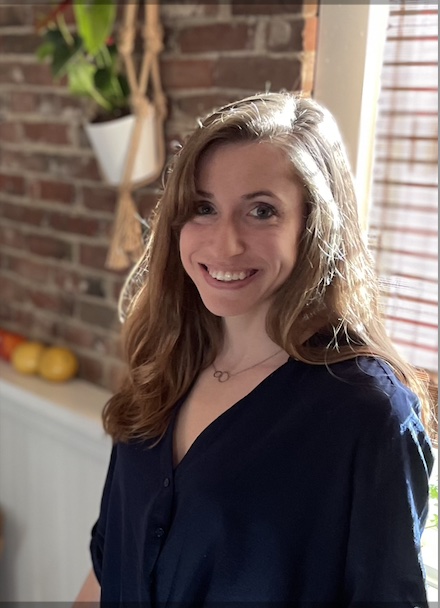Juliet Bottorff, PhD'23, Neuroscience
Lead Reviewer of Neurological Devices, FDA
June 13, 2025
Can you describe your career path and how it has led to your current work?
I've always loved math and science, and at many points in my career journey, I have made choices to keep my options open and explore multiple interests rather than continually narrow down. I became fascinated by neuroscience in undergrad at Duke, but I also minored in economics, and I enjoyed thinking about science in the context of the world and systems in which we live. I completed a 1 year Master of Management in the business school immediately following undergrad, which I found very practical for many aspects of life, but also unfulfilling career-wise, which cemented my desire to further my scientific career and pursue a PhD in neuroscience. However, I was also a D1 athlete in undergrad (cross country and track), and I took a break before my PhD to pursue a professional running contract for several years, which I viewed as a once-in-a-lifetime opportunity. Following a career-ending injury and a restlessness to get back on my long-term career path, I began my PhD in neuroscience at Brandeis. During my time at Brandeis, I discovered science policy, which I viewed as a highly impactful combination of science and economics, and a field dedicated to ensuring that the science and research that is done in labs benefits the public in the most impactful and efficient ways. It also seemed to me that science policy is incredibly far from optimized, which just made me want to explore and contribute to that world more. From there, I eventually learned about the work at the FDA, where scientists review data for new medical devices, drugs, biologics, and food to determine whether a new product has a sufficient benefit-risk assessment to introduce to the public. I am now a scientific reviewer in an office that reviews neurological medical devices, such as brain-computer interfaces (BCIs), stroke devices, spinal cord stimulators, and more. Scientific reviewers analyze and consider cutting edge scientific data in the context of public needs, and work with companies that bring new products to market while keeping the patients and public interest at the forefront of device development. My work at the FDA combines my scientific expertise and interests in policy and economics and provides valuable experience and skills to prepare me to continue to explore the world of science policy in the future.
What does a typical day/week look like for you in this position?
In any given day/week, I spend about 50% of my time in meetings and 50% reviewing files, data, test reports, clinical trial protocols and results for new medical devices in development. I work closely with many other scientific experts internally at the FDA, with specialties different than my own, to ensure that we consider all relevant perspectives when making regulatory decisions. I also often have meetings with external stakeholders to discuss an application that has been submitted for premarket approval or to discuss various aspects of clinical testing, such as protocol design or statistical analysis, or non-clinical testing, throughout the device development process. I also spend time learning and keeping up with relevant literature and attending various seminars and conferences to keep up-to-date on relevant fields and topics.
What skills from your Brandeis degree have you found most valuable in your current work?
Many of the more general skills from my Brandeis degree I use daily: the ability to quickly and objectively synthesize and evaluate large amounts of data, figure out where gaps in knowledge still exist, and ask lots of questions. My work at the FDA is incredibly collaborative, and we are always learning from each other; the ability, willingness, and curiosity to ask lots of questions can not be underestimated. The ability to be faced with a large challenge that no one knows the answer to and be excited to tackle it is also important. Similar to a PhD, the biggest questions are often the most interesting and impactful, and they can always be broken down into smaller pieces and taken one step at a time. Any progress made is progress that hadn't been made before!
What advice do you have for current students as they embark on their career exploration or job search?
Ask lots of questions! Talk to as many people in as many different roles as you can. Keep in mind that these people will have their own personalities, backgrounds, strengths, and weaknesses that are influencing how they view and talk about their jobs. The more people you talk to, the more well-rounded your view of various jobs will be and the better your understanding of what would be the best fit for you. Keep an open mind! There are many different types of jobs out there; you may have never even heard of your dream job yet!






